Understanding BET inhibition as a novel pathway for cardiovascular risk modulation
At the 'A novel approach for high cv risk patients with diabetes: the potential of epigenetics' symposium, held at the ESC Congress 2016 in Rome, Jorge Plutzky spoke about BET inhibition as a nover pathway for CV risk reduction.
Educational information10' education - Aug. 28, 2016 - ESC 2016, Rome - Jorge Plutzky, MD – Brigham and Women’s Hospital, Harvard Medical School, Boston, MA, USA - Recorded at PACE-CME symposium at ESC 2016
This lecture was part of a CME accredited symposium: 'A novel approach for high CV risk patients with diabetes: The potential of epigenetics' held at ESC 2016 in Rome
Video navigation menu
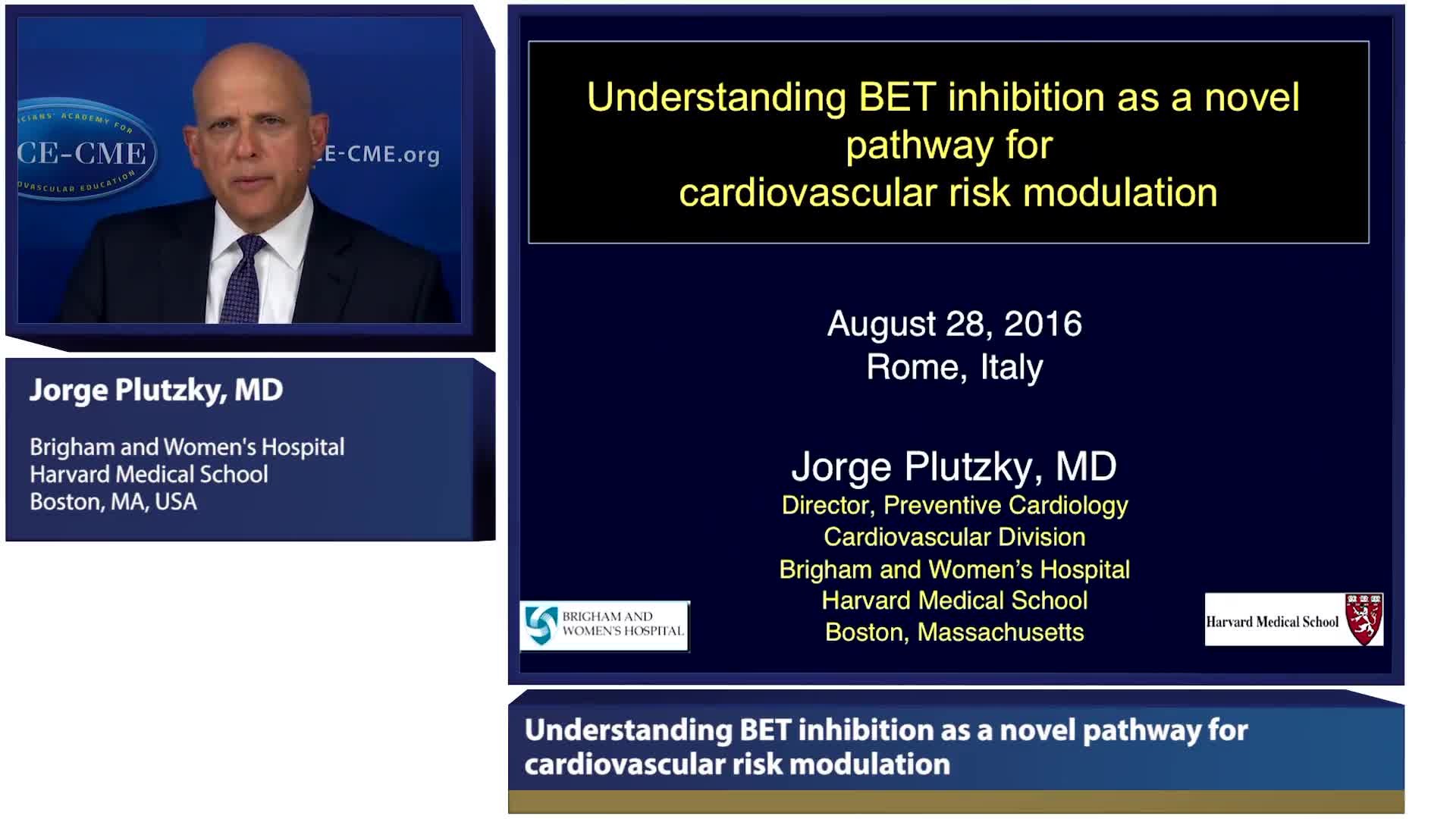 Concept of coordinated programs in cardiometabolic states by key proximal transcription factors 00:40
Concept of coordinated programs in cardiometabolic states by key proximal transcription factors 00:40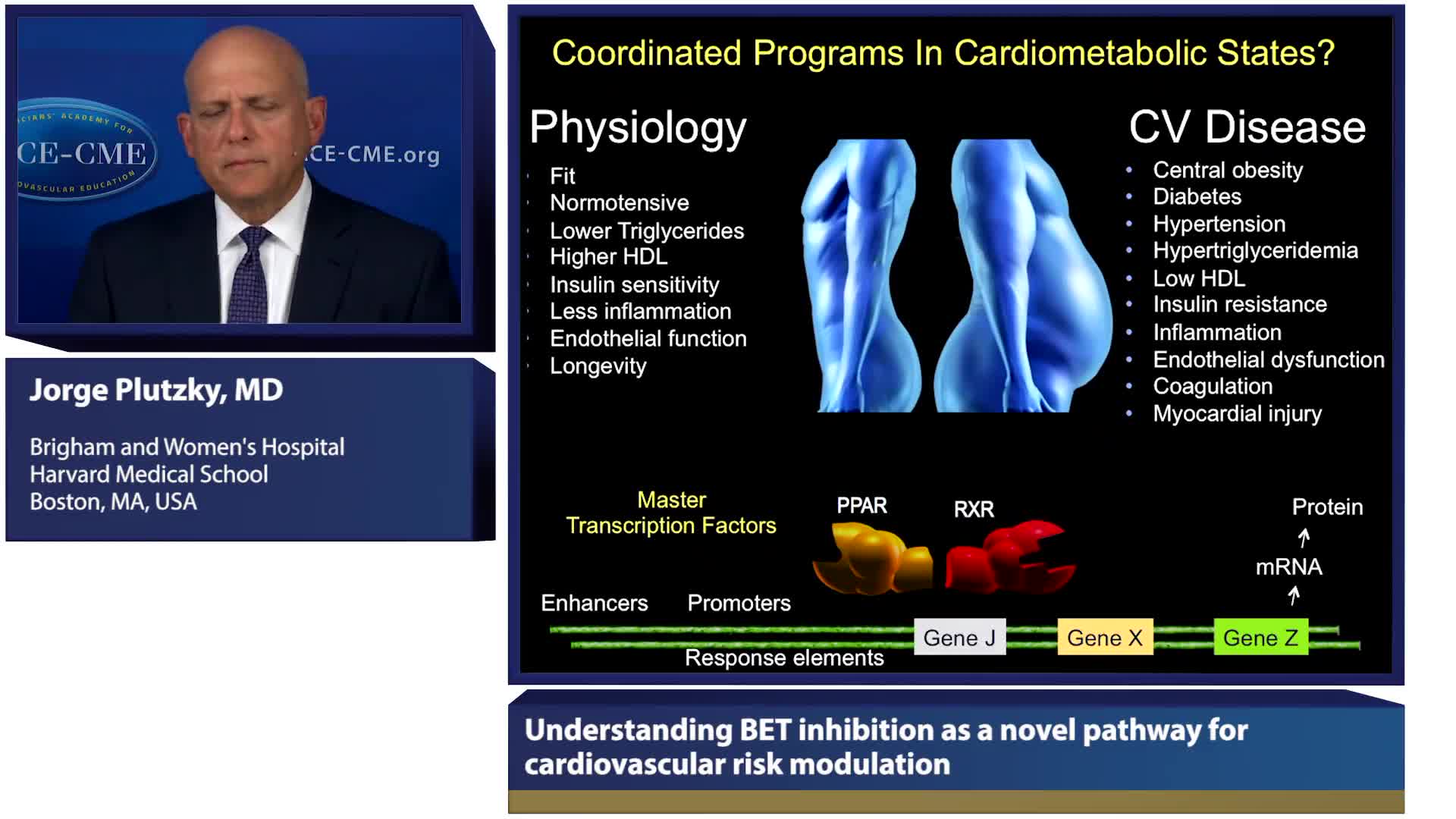 Epigenetics as a way of regulating these programs above the level of the DNA 03:40
Epigenetics as a way of regulating these programs above the level of the DNA 03:40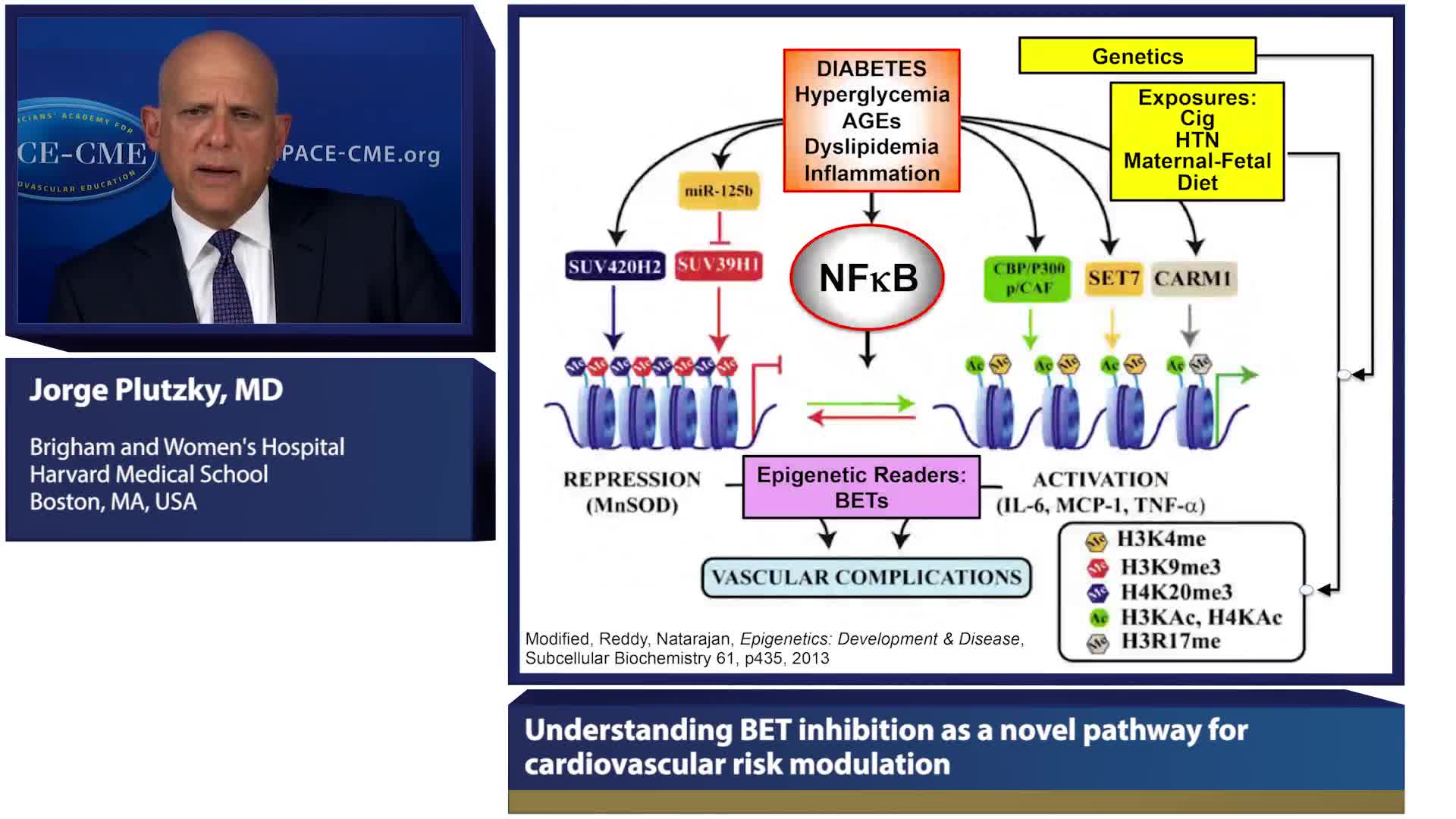 The role of epigenetics in diabetes 06:53
The role of epigenetics in diabetes 06:53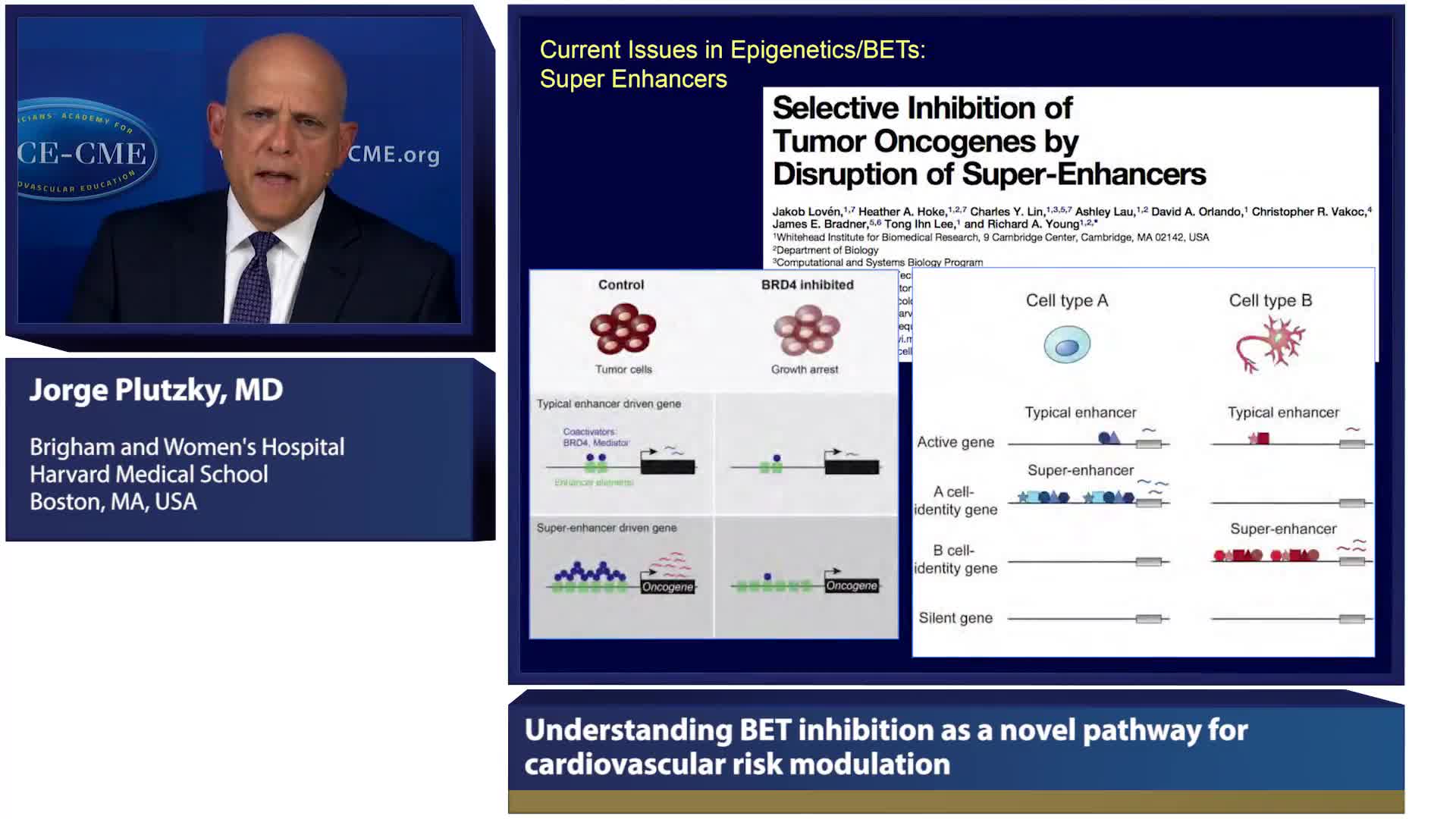 Current issues in epigenetics/BETs: Super enhancers 09:30
Current issues in epigenetics/BETs: Super enhancers 09:30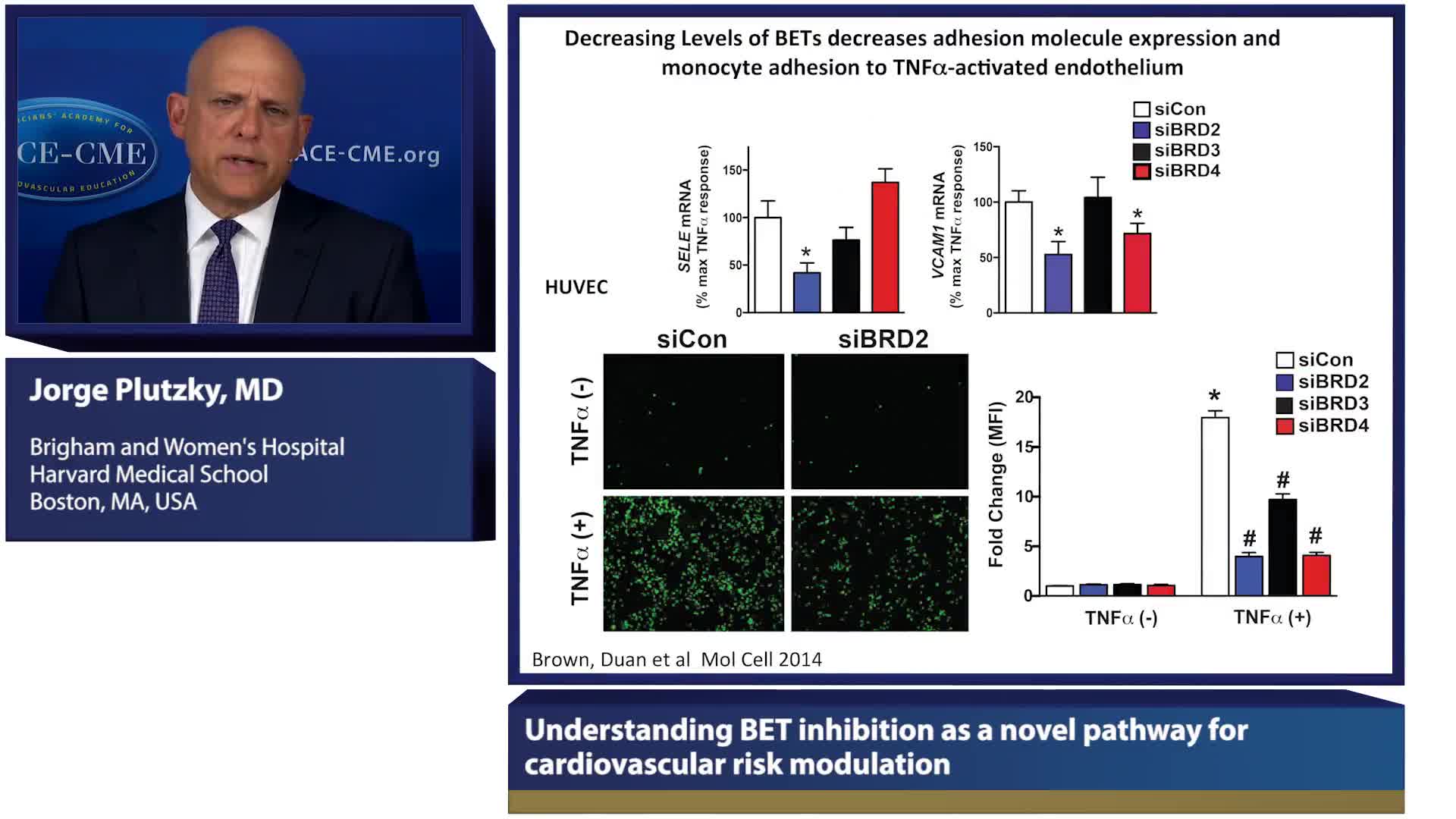 Endothelial effects of BET inhibition 10:47
Endothelial effects of BET inhibition 10:47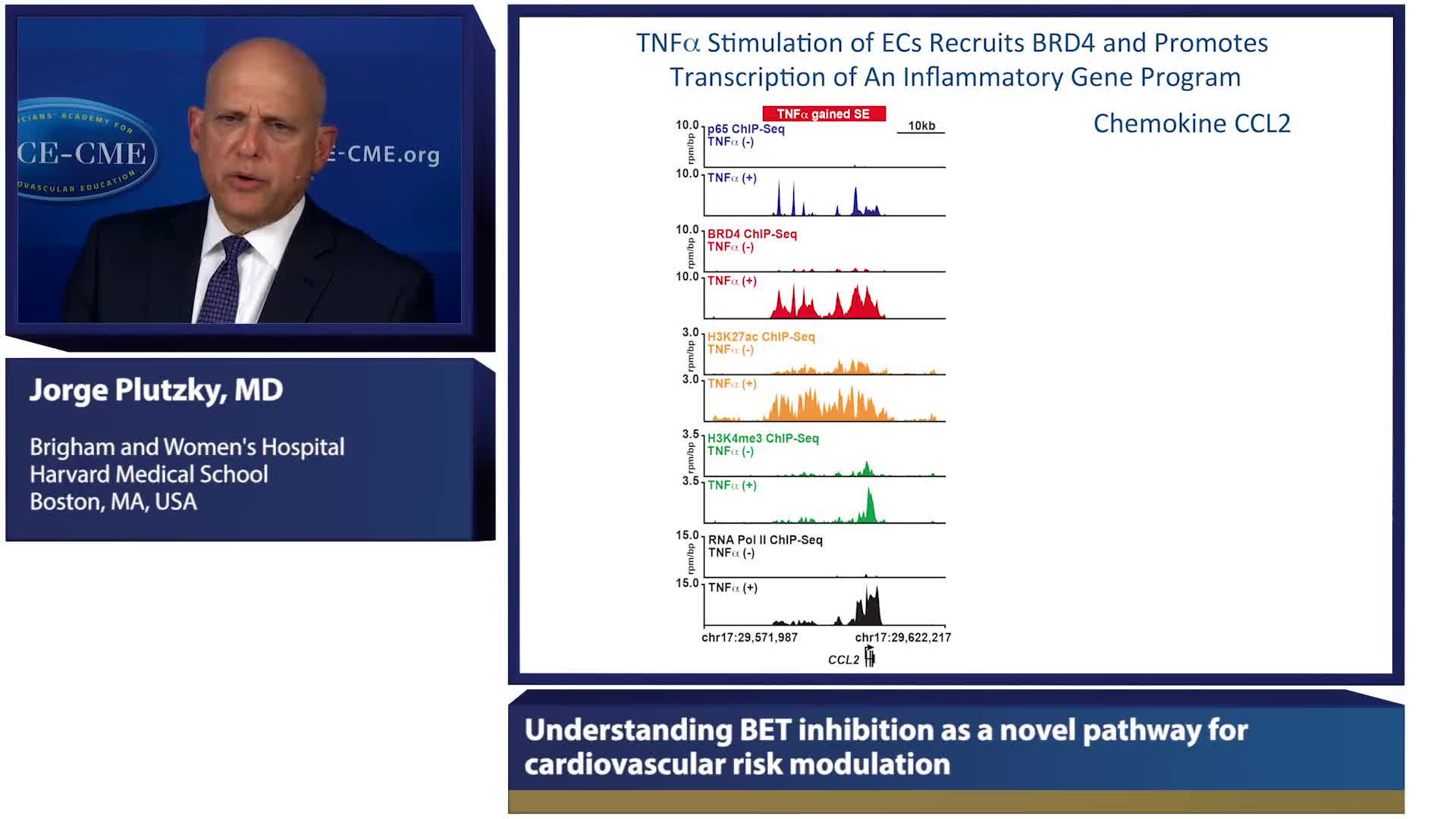 Association of BRD4 with many pro-inflammatory, pro-atherosclerotic target genes 14:28
Association of BRD4 with many pro-inflammatory, pro-atherosclerotic target genes 14:28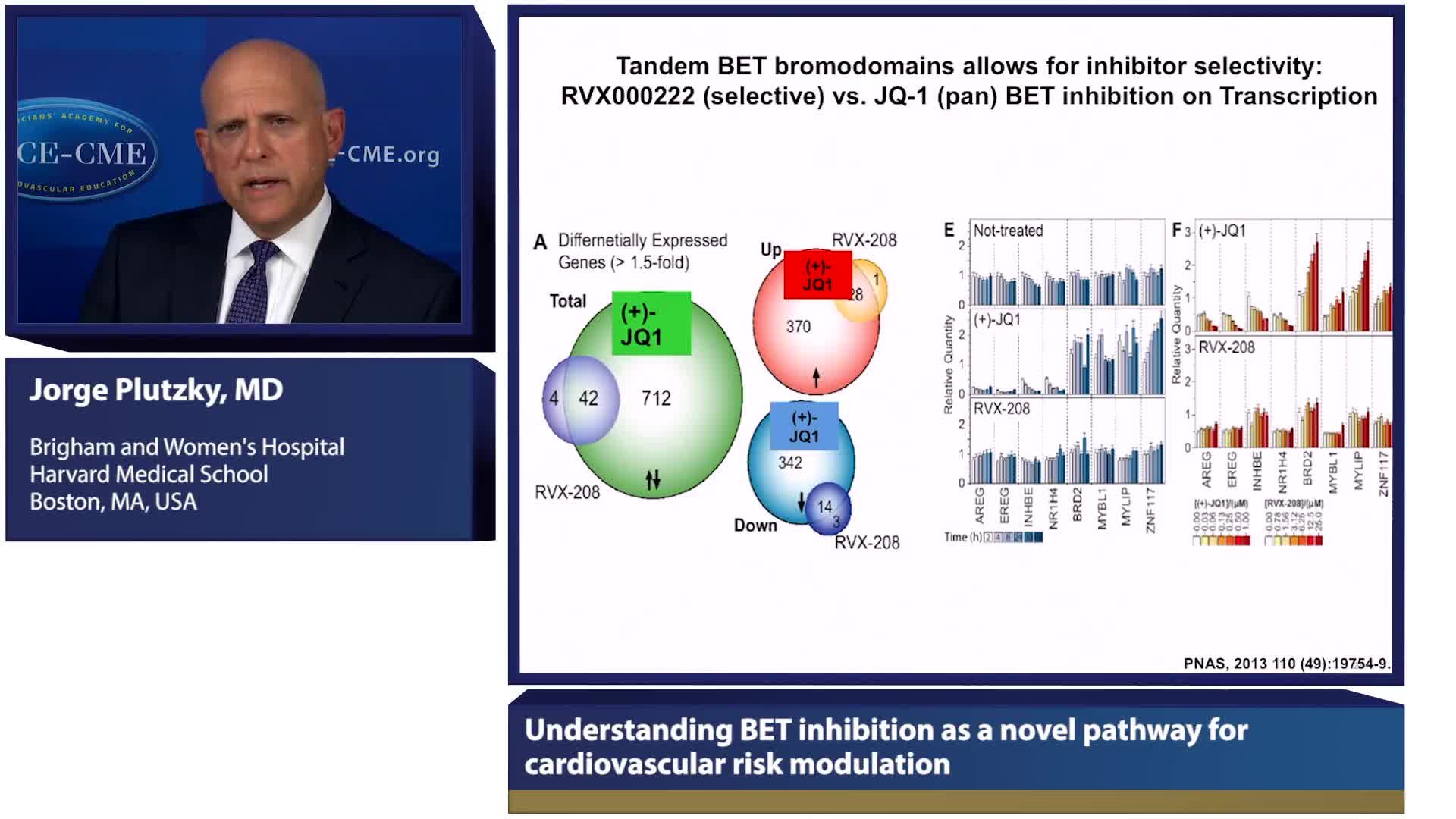 Apabetalone reduces atheroma in aorta of apo E-/- mice 15:52
Apabetalone reduces atheroma in aorta of apo E-/- mice 15:52
The educational objectives of this symposium were:
- To summarise the epidemiology and pathophysiology of patients at high cardiovascular risk with diabetes
- To understand the origin of the high residual cardiovascular risk in patients with diabetes & ACS
- To review how BET inhibition affects gene expression via epigenetic mechanisms, as a novel strategy to improve outcomes in CVD
- To update and review current clinical research programmes evaluating the role of epigenetic regulation of gene expression in CVD management.
CME accreditation
This programme is accredited by the European Board for Accreditation in Cardiology (EBAC) for 1 hour of external CME credit(s).
Disclosures
Jorge Plutzky, M.D. is the Director of the Vascular Disease Prevention Program, which includes the Lipid/Prevention Clinic, at Brigham and Women’s Hospital (BWH), and is on the faculty of Harvard Medical School
Funding
Supported by an unrestricted educational grant from Resverlogix
